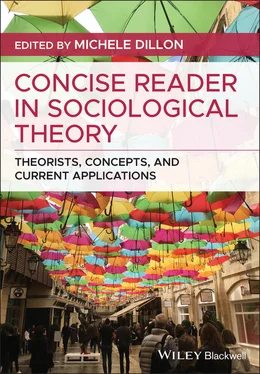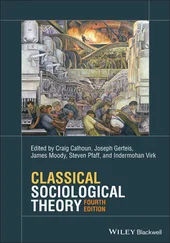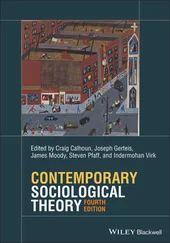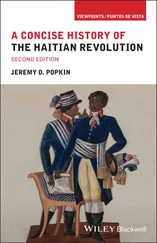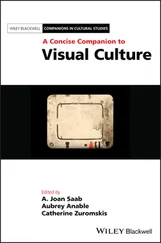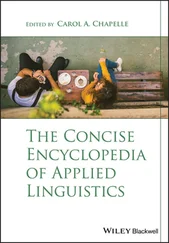1 ...8 9 10 12 13 14 ...19 In creating a world of objects by his practical activity, in his work upon inorganic nature, man proves himself a conscious species‐being, i.e., as a being that treats the species as its own essential being, or that treats itself as a species‐being. Admittedly animals also produce. They build themselves nests, dwellings, like the bees, beavers, ants, etc. But an animal only produces what it immediately needs for itself or its young. It produces one‐sidedly, whilst man produces universally. It produces only under the dominion of immediate physical need, whilst man produces even when he is free from physical need and only truly produces in freedom therefrom. An animal produces only itself, whilst man reproduces the whole of nature. An animal’s product belongs immediately to its physical body, whilst man freely confronts his product. An animal forms objects only in accordance with the standard and the need of the species to which it belongs, whilst man knows how to produce in accordance with the standard of every species, and knows how to apply everywhere the inherent standard to the object. Man therefore also forms objects in accordance with the laws of beauty.
It is just in his work upon the objective world, therefore, that man really proves himself to be a species‐being . This production is his active species‐life. Through this production, nature appears as his work and his reality. The object of labour is, therefore, the objectification of man’s species‐life : for he duplicates himself not only, as in consciousness, intellectually, but also actively, in reality, and therefore he sees himself in a world that he has created. In tearing away from man the object of his production, therefore, estranged labour tears from him his species‐life , his real objectivity as a member of the species, and transforms his advantage over animals into the disadvantage that his inorganic body, nature, is taken away from him.
Similarly, in degrading spontaneous, free activity to a means, estranged labour makes man’s species‐life a means to his physical existence.
The consciousness which man has of his species is thus transformed by estrangement in such a way that species[‐life] becomes for him a means.
Estranged labour turns thus:
(3) Man’s species‐being , both nature and his spiritual species‐property, into a being alien to him, into a means for his individual existence . It estranges from man his own body, as well as external nature and his spiritual aspect, his human aspect.
(4) An immediate consequence of the fact that man is estranged from the product of his labour, from his life activity, from his species‐being is the estrangement of man from man . When man confronts himself, he confronts the other man. What applies to a man’s relation to his work, to the product of his labour and to himself, also holds of a man’s relation to the other man, and to the other man’s labour and object of labour.
[…]
Private property thus results by analysis from the concept of alienated labour , i.e., of alienated man , of estranged labour, of estranged life, of estranged man.
[…]
(5) The meaning of private property – apart from its estrangement – is the existence of essential objects for man, both as objects of enjoyment and as objects of activity.
By possessing the property of buying everything, by possessing the property of appropriating all objects, money is thus the object of eminent possession. The universality of its property is the omnipotence of its being. It is therefore regarded as omnipotent.… Money is the procurer between man’s need and the object, between his life and his means of life. But that which mediates my life for me, also mediates the existence of other people for me. For me it is the other person.
[…]
That which is for me through the medium of money – that for which I can pay (i.e., which money can buy) – that am I myself , the possessor of the money. The extent of the power of money is the extent of my power. Money’s properties are my – the possessor’s – properties and essential powers. Thus, what I am and am capable of is by no means determined by my individuality. I am ugly, but I can buy for myself the most beautiful of women. Therefore I am not ugly , for the effect of ugliness – its deterrent power – is nullified by money. I, according to my individual characteristics, am lame , but money furnishes me with twenty‐four feet. Therefore I am not lame. I am bad, dishonest, unscrupulous, stupid; but money is honoured, and hence its possessor. Money is the supreme good, therefore its possessor is good. Money, besides, saves me the trouble of being dishonest: I am therefore presumed honest. I am brainless , but money is the real brain of all things and how then should its possessor be brainless? Besides, he can buy clever people for himself, and is he who has 8 power over the clever not more clever than the clever? Do not I, who thanks to money am capable of all that the human heart longs for, possess all human capacities? Does not my money, therefore, transform all my incapacities into their contrary?
If money is the bond binding me to human life, binding society to me, connecting me with nature and man, is not money the bond of all bonds? Can it not dissolve and bind all ties? Is it not, therefore, also the universal agent of separation? It is the coin that really separates as well as the real binding agent – the […] 9 chemical power of society.
1C Karl Marx and Friedrich Engels from The German Ideology
Original publication details: Karl Marx, fromThe German Ideology Parts I & III , edited by R. Pascal. International Publishers, 1947, pp. 6–9, 13–15, 38–41. Reproduced with permission of International Publishers.
The premises from which we begin are not arbitrary ones, not dogmas, but real premises from which abstraction can only be made in the imagination. They are the real individuals, their activity and the material conditions under which they live, both those which they find already existing and those produced by their activity. These premises can thus be verified in a purely empirical way.
The first premise of all human history is, of course, the existence of living human individuals. Thus the first fact to be established is the physical organization of these individuals and their consequent relation to the rest of nature. Of course, we cannot here go either into the actual physical nature of man, or into the natural conditions in which man finds himself – geological, orohydrographical, climatic and so on. The writing of history must always set out from these natural bases and their modification in the course of history through the action of man.
Men can be distinguished from animals by consciousness, by religion or anything else you like. They themselves begin to distinguish themselves from animals as soon as they begin to produce their means of subsistence, a step which is conditioned by their physical organization. By producing their means of subsistence men are indirectly producing their actual material life.
The way in which men produce their means of subsistence depends first of all on the nature of the actual means they find in existence and have to reproduce. This mode of production must not be considered simply as being the reproduction of the physical existence of the individuals. Rather it is a definite form of activity of these individuals, a definite form of expressing their life, a definite mode of life on their part. As individuals express their life, so they are. What they are, therefore, coincides with their production, both with what they produce and with how they produce. The nature of individuals thus depends on the material conditions determining their production.
Читать дальше
